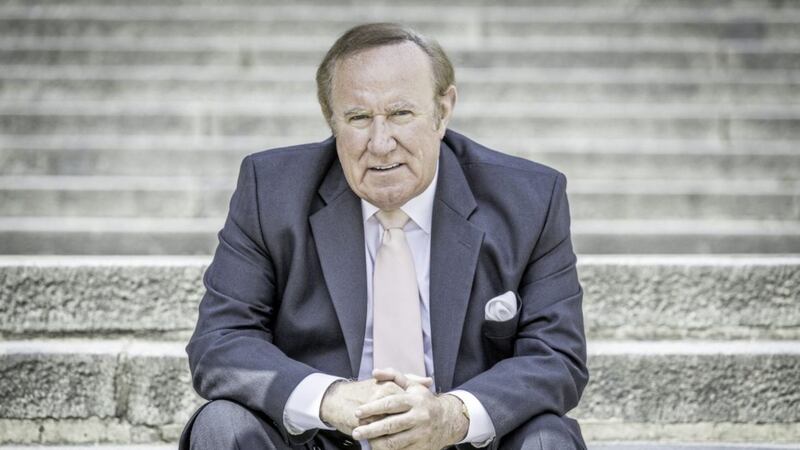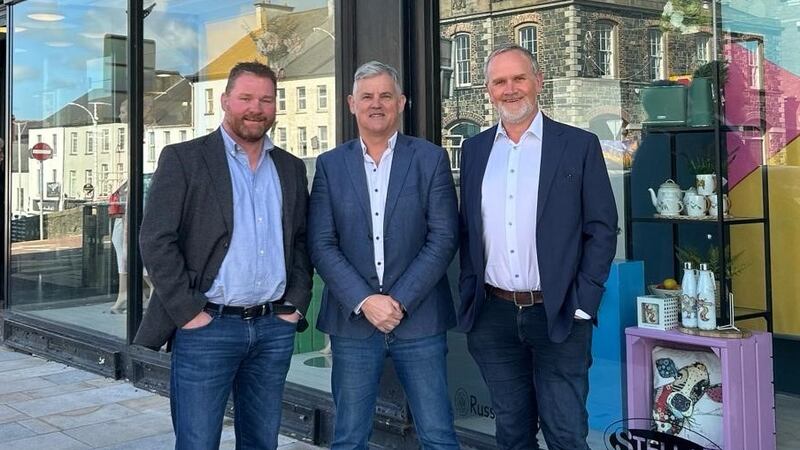THE recent hacking of the Republic’s Health Service Executive (HSE) that caused widespread disruption to the Irish health system, shone a harsh light on the online vulnerabilities faced by business and organisations.
While an extreme example, the attack serves to highlight the pervasiveness of the online world in our lives and all of the challenges that come with that.
More than half the world’s population is now on social media and the average UK user has seven online accounts. We have moved well beyond the question of if a brand or organisation should be online, to how they can best meet the challenges of being there.
And there is the question too of how those who, given the nature of their work, can defend reputation without resorting to responding to criticism on social media at all. Speaking at a recent conference, Chief Justice designate, Mr Justice Donal O’Donnell said: “Social media has completely altered public affairs and social discourse, if that is not too gentle a word.” Those and others like him, cannot and will not defend judgements on social media no matter where they originate.
Over the last year in particular, we have seen the exponential increase of online discourse with brands and corporations, there is little difference now between corporate issues and consumer issues. And so there has been a steep learning curve for global brands and corporates that have had to develop defensive online strategies to manage risk.
I’m not thinking here of speedy responses to service or product reviews from dissatisfied customers, that should be a given, but of the online citizen’s use of social media to challenge a brand or organisation’s very licence to operate. The stakes are high, I’ve written previously in this column about the impact of fake news and I’ll repeat, like a tiny drop of ink in water, a small amount of misinformation can spread, bringing down corporations and demolishing reputations.The Wayfair human trafficking conspiracy theory is an example of how in a matter of hours, outlandish claims can spread and take hold across countries and continents.
In an environment that has changed dramatically in the last five years and at an even faster rate during the pandemic, consumer expectations have increased. The norm now is for consumers to go beyond a product or service that is being offered to look at the values and commitment of those making the offer. Whether the topic be diversity, animal welfare, climate change or health, consumers want to know the position of those they are purchasing from.
As long as your business activities and practices are conducted in the context of core values and purpose that you can happily stand over then you should be able to successfully address arising challenges.
The above is easily stated of course, in reality managing online threats to brand or corporate reputation requires consideration, resourcefulness and flexibility. You need to consider the stakeholders who will be impacted, how you should engage, with what messages you will engage and indeed, at times, whether you should engage at all. Misinformation should always be corrected but the more complex the issue the more difficult it is to deal with in the confines of social media and so you should seek to take the conversation offline where possible.
When it comes to misinformation an organisation’s employees are among the most important and direct action should be taken immediately by the communications team to ensure rumours are scotched and the narrative corrected.
Preparedness will help. Keeping a close eye and ear to how social issues that have potential to impact your business are playing out on social media will help you in assessing risk. Paying careful attention will allow you to anticipate where and from whom issues may arise.
Anticipating all the ways in which your licence to operate may be challenged and considering in advance all of the elements that need taken into account will support the production of social response guidelines.
Facts and an evidence-based approach are critical to rebutting negative commentary but, when it comes to social issues, so too are some guiding principles on when you should engage. It is one thing to respond to criticism and correct misinformation, it is another entirely to live a groundhog day existence in which you are repeatedly dealing with the same commentary on an issue over and over again.
Fifteenth century poet, John Lydgate was on the money with his assertion “You can please some of the people all of the time…” Acceptance that we live in a world where you are highly unlikely to please all of the people all of the time, should help inform your approach to social engagement.
The current controversary around the decision of several brands to pull advertising from new news channel GB News is interesting in terms of how the brands involved are engaging. Some, like Specsavers, have chosen to stay stum as those in twittersphere show support or rail against their stance while others, like Octopus energy, have shared a letter to customers that lays out their position and was drafted, according to the company’s twitter feed on the back of ‘hundreds of emails from genuine customers’. Elsewhere on twitter Octopus CEO has engaged in a somewhat unhelpful spat with Andrew Neil.
I would caution too that rather than taking a stand on issues that divide opinion, those complex issues on which consensus is well neigh impossible, you find and speak with your own voice in asserting why the conversation at hand is important and what you believe its connection is to your corporate or brand values.
In the digital age, online risks are high and vigilance is required, in the era of the citizen consumer it is those businesses with confidence in their values and purpose and who are well prepared that will prosper.
:: Claire Aiken is managing director of public relations and public affairs company Aiken.
:: Next week: Paul McErlean








